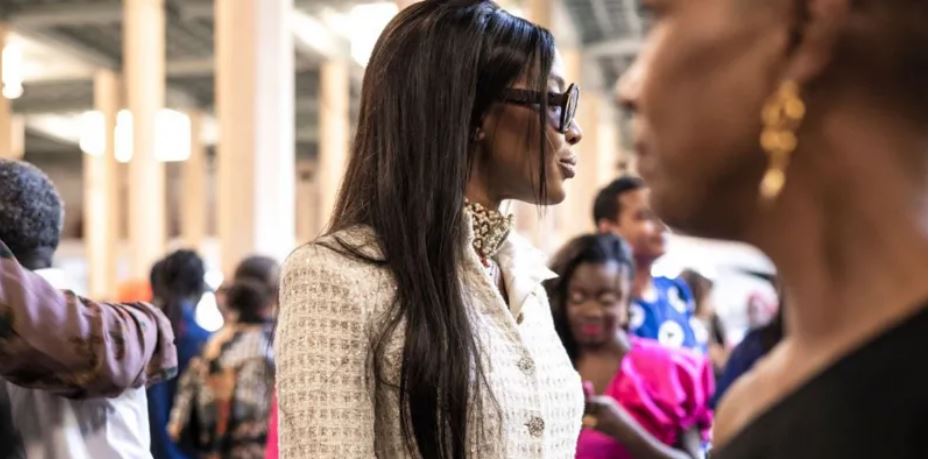
 Wigs are ever-popular in Senegal - as sported here by supermodel Naomi Campbell at a recent fashion show in Dakar
Wigs are ever-popular in Senegal - as sported here by supermodel Naomi Campbell at a recent fashion show in Dakar
A sudden and swiftly reversed ban on wigs, hair extensions, and skin-lightening products at an iconic theatre in Senegal's capital, Dakar, has ignited a widespread public backlash - laying bare deep tensions around identity, gender politics, and cultural nationalism in the West African nation.
The internal memo was stamped by the national culture ministry and issued on Monday by Serigne Fall Guèye, director of the Grand Théâtre de Dakar.
He said the move was to "promote Pan-African values" and protect the institution's cultural image.
But critics accused Guèye of policing women's bodies under the guise of cultural pride, and the ban was reversed the following day.
Feminist groups and civil society leaders said the memo reflected broader concerns about gender inequality in Senegal, especially given the low number of women in President Bassirou Diomaye Faye's administration - four out of 25—and the removal of the Ministry of Women.
Many social media users criticised the ban as sexist, invasive, and paternalistic.
The controversy was further complicated by Serigne Fall Guèye's own political background. Before being appointed to the Grand Théâtre in early 2024, Guèye was a prominent figure in Pastef—the ruling party known for its anti-colonial, pan-Africanist rhetoric.
At the time, he led the party's artistic and cultural commission, championing a return to what he called "authentic African values."
Critics fear that Guèye's personal ideology is now bleeding into what should be a neutral public entity.
"This isn't about wigs or skin," political analyst Fatoumata Ba tells the BBC. "It's about a broader power play - using state institutions to impose a particular version of identity, while silencing or sidelining anyone who doesn't conform."












